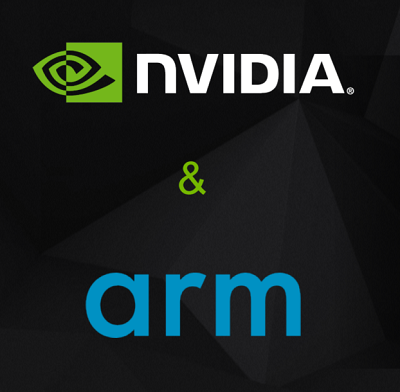The chiefs of Nvidia and Arm made the case this week for regulatory approval of a proposed mega-merger, arguing the combined chip house would preserve the IP vendor’s business model since the acquisition is “complementary” and would drive AI-inspired innovation.
Nvidia, which announced its game-changing $40 billion deal for Arm last month, faces stiff regulatory scrutiny. The deal has also raised concerns about the fate of Arm’s developer-driven business model. Nvidia’s Jensen Huang and Arm’s Simon Segars both acknowledged those concerns, but predicted the deal would eventually gain regulatory approval. The CEOs discussed the matter in a fireside chat at the Arm Dev Summit on Tuesday (Oct. 6).
In defending the acquisition, Huang recounted a recent conversation in which he was told, “’You paid and arm and a leg for Arm.’” The Nvidia CEO said he did not dispute that assessment.
 Arm Co-Founder Hermann Hauser slammed the proposed acquisition as “a disaster,” undermining Arm’s business model that currently licenses chip IP to Nvidia’s direct competitors. Arm has about 400 licensees, “which are all the semiconductor companies in the world,” Hauser told the BBC in the days after the deal was announced.
Arm Co-Founder Hermann Hauser slammed the proposed acquisition as “a disaster,” undermining Arm’s business model that currently licenses chip IP to Nvidia’s direct competitors. Arm has about 400 licensees, “which are all the semiconductor companies in the world,” Hauser told the BBC in the days after the deal was announced.
More recently, technology industry analysts have cast doubt on whether the acquisition would be completed. Along with anti-trust scrutiny in the U.S. and Europe, China could be a stumbling block. Chinese and European concerns also reflect a growing shift toward “technology sovereignty,” analysts said.
That point was also made by Hauser, who called the proposed deal a “sad day” for the U.K. and Europe’s technology sector. One reason, Hauser said, was Arm would lose its independence by surrendering its global ecosystem.
Huang again downplayed those concerns during this week’s Arm developer conference. Promising to retain Arm’s headquarters in Cambridge while investing in the U.K.’s most powerful supercomputer, the Nvidia CEO added, “The two companies being complimentary when combined will create new innovations, which is good for the market and drives innovation forward.”
Added Huang, “We love the [Arm] business model. We’re going to protect it.”
The chip merger would continue to “put technology in the hands of developers,” said Arm’s Segars. The deal is “about expanding. It’s about training more and new technology. It’s about putting that technology in the hands of people who are going to build really cool stuff with them.
“From that point of view, this is about enabling more people to do more things,” said Segars. “That’s the positive thing, that [if] regulators do scrutinize this, that they’re going to be able to see.”
Huang and Segar also made the case that the combined chip giant would bring together key hardware and software components needed to advance AI technology. That combination, characterized by machines writing software, Huang said, would advance AI across HPC, cloud, edge and personal computing applications.
The merged company would provide Arm’s developer ecosystem with access to Nvidia GPUs, network processors and its expanded family of DPUs, or datacenter processors. Huang also said Nvidia would marry its CUDA computing platform and API model as an “accelerator” for Arm as the IP vendor enters the HPC sector.
Those tools along with domain-specific libraries and deep learning algorithms would enable Arm developers to forge new computing platforms. “It’s up to the software developers to create growth, and machines will write that software,” Huang said.
The CEO also named Fujitsu (A64FX), Ampere (Altra) and Marvell (ThunderX) as partners.
If and when the blockbuster deal is approved, Huang concluded, “We would like to create the computing company of the Age of AI.”
China has similar aspirations, but Huang dismissed growing tensions between Beijing and Washington over access to semiconductor technology as “fundamentally different by law.” That’s a reference to U.S. export controls aimed at Chinese chip makers. Observers have predicted that China, in its drive for chip independence, would likely move to reject or at least curtail the Nvidia-Arm deal.
“The most important thing is to realize that the jurisdiction or the law of export control applies to the origins of the technology, which was invented in Cambridge, some 30 years ago, not by the ownership of the company,” said Huang.
He noted the company faced similar regulatory scrutiny when it acquired Mellanox. Regulators are “looking to ensure that their markets are pro-competitive, that this is pro-innovation… and this is good for customers,” he said. “We can prove that and show that and demonstrate that overwhelmingly, so I have no concerns.”
Header photo: Arm’s President of IP Products Rene Haas (left) hosts a fireside chat (Oct. 6, 2020, Arm Dev Summit) with Arm CEO Simon Segars (center) and Nvidia CEO Jensen Huang (right).
–Tiffany Trader contributed to this report.




























































